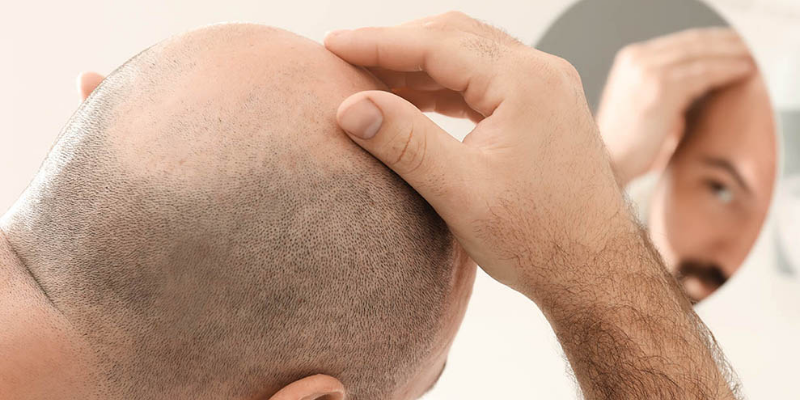The question of should I get a hair transplant is a frequent question in the minds of those who want to have a hair transplant. With its remarkable outcomes, hair transplantation has become an increasingly popular therapy for hair loss. Decide whether or not you want to undergo hair transplantation, which is a life-altering procedure that will allow you to have natural, healthy hair if you do it correctly. Decisiveness about hair transplantation comes at a point when hair loss is becoming more and more visible. Naturally, when a person decides to get a hair transplant, he’ll look for information from a variety of different sources on the topic. Gathering information over the internet is, without a question, the most convenient way to do this.
At What Age Should I Get a Hair Transplant?
If at all feasible, patients should wait until they are 30 years old, although there are certain exceptions based on the patient’s needs. Recall that individuals who underwent exploratory surgery had their hair loss controlled at that time. Patients who have hair transplants will have hair where their hair is thinning or falling out, and this can be permanent. There will be no hair in other regions if people continue to lose their hair. Patients’ hair loss tends to slow down and become more predictable as they become older, which is why we advocate hair transplant surgery at this age.
Because a hair transplant operation may be life-altering, you should carefully research all alternative options before deciding to undergo surgery. It doesn’t matter how large or little a surgical procedure is, it’s a significant commitment that should consider carefully before proceeding.
Before the Question of Should I Get a Hair Transplant, Why Does the Hair Loss Happen?
Genetic factors are the most common cause of hair loss, but there are other causes as well. Nutrient deficiency or imbalance impacts hair quality. Losing hair is a direct result of stress and unhappiness affecting the body’s health and immune system as a whole. Thyroid gland hormones induce hair loss; hair appears lifeless, dry, and pale as a result of thyroid gland hormonal imbalance. Anaemia, postpartum, menopause and postmenopause, diabetes, nutritional problems, and a variety of medications are some of the conditions that might affect women after childbirth.
There are other causes that contribute to hair loss such as systemic illnesses and mechanical and chemical processes as well as exposure to seawater. In addition to that, sun rays, and chlorine in swimming pool water. Especially in the spring, and even more so in the fall, hair loss, also known as seasonal shedding, rises.
Should I Get a Hair Transplant: Should I Wait for Hair Transplantation?
They might feel the urge to intervene promptly when young patients start losing their hair. An early hair transplant might be a viable choice in such circumstances. It will allow you to regain your cherished locks. Is this, however, always a good idea? Although the transplanted hair will remain stable, patients should be aware that hair loss is gradual.
There will be a permanent strip of hair grafted on the scalp. Because of the artificial appearance of the transplant, if the trend of hair loss persists; the patient may have to have it done again at an additional cost.
As a result, having a hair transplant in your early 20s may not be the greatest idea. In order to enhance hairline density, pre-planting is an option for young people who are worried about hair loss. Their treatment needs might increase with age, though. People who still have hair on the back and sides of their heads might benefit from hair transplantation. For the front and crown of the head, it is possible to match the natural hair follicle model with a transplant. It’s not too late to attempt over-the-counter hair loss treatments if you’re young. They improve blood flow to the scalp and stimulate new hair growth by increasing blood flow to the scalp.
Should I Get A Hair Transplant If I Have Baldness?
Many factors can contribute to baldness. Hair loss is caused by a variety of factors such as emotional changes and physical changes in the environment, illnesses and conditions such as AIDS, anaemia and diabetes, and cancer, methods such as radiotherapy and the surgeons involved in this process. However, medications and their weight, drug use processes, side effects and the effects of delivery as well as unbalanced and irregular sleep, unbalanced nutrition, and many others effects.
Baldness can be treated in a variety of ways. In order to use these procedures, different tests conduct and hair transplantation techniques apply to the individual according to his or her health, skin type, living situations, and allergic responses.
Unfortunately, if you’re entirely bald, a hair transplant isn’t an option. However, a hair transplant is not a miracle. It involves extracting hair follicles from one part of the scalp and transferring them to another. That’s the brief version. There is no donor area for physicians to deal with if you don’t have any hair, to begin with.
Things to Consider After Hair Transplant
When it comes to hair transplants, there are numerous elements that influence the treatment’s effectiveness. Hence, it’s feasible to achieve the best outcome by examining each component in its own way. Bandage removal and the first and possibly most essential cleaning to be done after the bandage is removed are the first and most significant items to consider in the post-operative process. Under the guidance of the physician performing the transplant. Also due to the full process of hair transplantation. In most cases, the bandage doesn’t reattach after it properly removes. There are 15 days following surgery when alcohol and smokes should be avoided. Smoking interferes with oxygen flow and alcohol has a blood-thinning impact. When it comes to a quick recovery and high success rate, it’s important to consider the effects of drinking and smoking.
Headache and discomfort in the transplanted area are common side effects of hair transplantation, especially in the early stages. Your doctor may have prescribed some painkillers that you might use to ease the discomfort. It varies from patient to patient, but in general, the discomfort begins to subside after the first three days and is gone within two weeks.
Why Should I Get a DHI Hair Transplant?
One of the main benefits of a DHI hair transplant is that the results can be seen almost immediately, with natural-looking hair transplantation growing in the transplanted area. The procedure involves taking donor hair follicles from a donor site and carefully implanting them in the recipient area. It is a safer option than most other types of hair transplant surgery due to its minimal risk for infection and scarring. Furthermore, DHI hair transplant Istanbul cost tends to be much more cost-effective over time compared to other forms of treatment for hair loss, such as medications and wigs. Therefore, a DHI hair transplant is worth considering if you are looking for an effective and economical option for restoring your hairline or dealing with thinning areas. With the growing popularity of this procedure, chances are you’ll find a nearby clinic that offers it at a reasonable price.

Due to its effectiveness, hair transplantation is a growing trend in many countries worldwide. This trend will likely continue with technological advancements over the coming years. Therefore, if you’re considering restoring your hair loss through a DHI hair transplant, then now could be a perfect time.





